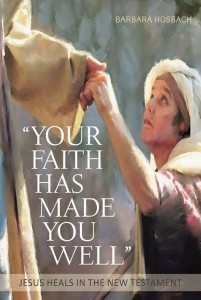Planets, Dr. Seuss and Snowflakes—Combined Proof That There is a CREATOR
Ten years ago, NASA’s new, Horizon Spacecraft left our humble, little planet and began its voyage to to the edges of our solar system and beyond. After traveling 3 billion-plus miles, New Horizon finally passed Pluto, the furthest planet from our sun. I don’t know about you but I find it so humbling and awe inspiring that we human beings, using the perfection that surrounds us, can mange to find a planet that is so far away. Yet, within our universe, it would be as close as a neighbor down the street.
How can we possibly know how to measure distance and location and density and climate relating to places that are so unimaginably far away? The speed of light is 186,000 miles per second. Who figured that out? How do you measure the speed of light? Assuming the number is correct, that means in one minute light travels 11+ million miles. That would be almost 16 billion miles in one day. Multiply that number by four and a half years. Do you see where I’m going with this? The light from our own sun takes eight minutes to reach Earth. Now scientists have found an “exoplanet” which is more than a thousand light years away and they have figured out that it revolves around its sun in 385 days vs our 365 days. WHEW!
Let’s move past Pluto. It seems NASA’s Kepler Space Telescope, launched in 2009, found this exoplanet; they named it Kepler 452b. This exoplanet could be similar to our hometown, Earth. “Hello sister planet, Kepler 452b.” The Kepler Telescope has identified close to 5000 exoplanets since it started scanning the deepest parts of space. But this is the first one that could be just like Earth. Now, get this–it is one thousand and four light years away. Our closest star system is Alpha Centauri, a mere 4.3 light years away. That means our closest star system is trillions of miles from our solar system and would take us tens of thousands of years to get there. Kepler 452b is 200 times further than that. My question is–how can we know these things?
![By NASA/Ames/JPL-Caltech [Public domain], via Wikimedia Commons](http://blog.catholicwritersguild.com/wp-content/uploads/2016/04/Kepler-452b_and_Earth_Size-1024x576.jpg)
By NASA/Ames/JPL-Caltech [Public domain], via Wikimedia Commons
What about explosions? (Please bear with me–I do intend to make a point.) Explosions are destructive and, for the most part, maim, kill and destroy. Last Fourth of July a guy in Maine, in a festive frame of mind, brilliantly set a rocket off from the top of his head. He died instantly. Jason Pierre Paul, the all-pro defensive star for the NFL’s N.Y. Giants, blew several fingers off his hand with fireworks. C. J. Wilson, of the Tampa Bay Buccaneers, retired because he blew several fingers of his hand with fireworks. We can go back 70 years and remember that on August 6, 1945, the atomic bomb blew the Japanese city of Hiroshima to smithereens. It also killed about 80,000 people. It follows that if I set a bomb off in my car the chances of the result being a nicer car are–well, ZERO.
So now–to the point. The Big Bang Theory of Creation has become the favored explanation of how our seemingly infinite universe came into existence. Scientists do agree that the universe did, in fact, have a beginning. They also know that the universe is expanding and changing and dying, just like we do. To the question: At the moment of creation when the unimaginable explosion took place or whether it was something like a giant balloon expanding and expanding until it “popped” spewing matter outwards, it all had to be controlled. Who did that?
Random explosions do not and cannot result in perfection. Twenty-four hours in a day is perfect for us imperfect species to depend on, including the animals. It is a contradiction to believe otherwise. Perfection surrounds us. We can predict the rising and setting of the sun to the second, the new and full moons to the minute. We know when the tides rise and fall and can predict their lowest and highest points to the minute. We know when an eclipse, whether solar or lunar will occur and where. We have learned how to use the world around us to maintain our very existence or, in many cases, destroy it.
Bottom line: because the universe is so vast and expansive (and apparently infinite) and all of it is moving and changing within a perfectly ordered system proves someone bigger and smarter than any of us put this in place. We cannot understand this. We cannot scientifically prove it. But, no matter what, we live in it and survive by it every second of every day of our lives. Perfection does not come from chaos. Perfection can only come from someone who is PERFECT. We here at the CWG know who that Person is even though we cannot see HIM or touch HIM. All we have to do is see a rising sun, a blooming rose, a full moon, a rainbow…or hear the cry of a newborn baby or ponder the magic of one snowflake, unique unto itself.
Maybe Dr. Seuss nailed it in his famous book, Horton Hears a Who. Maybe our planet Earth is really no bigger than Horton’s “Whoville.” Maybe we are specks on the end of a ball of dust. Maybe we are not as big and as smart as we think we are. We had to have a Creator. It is common sense. It is ultimately all in HIS hands. I am also sure HE subscribes to the famous sentence in Dr. Seuss’s book, “a person’s a person no matter how small.” Maybe those very “smart” people who reject what must be so need to breathe in a deep dose of humility and realize that this all did not just happen as the result of some random explosion or expansion. It is illogical and makes no sense (to me).
©LarryPeterson 2016





